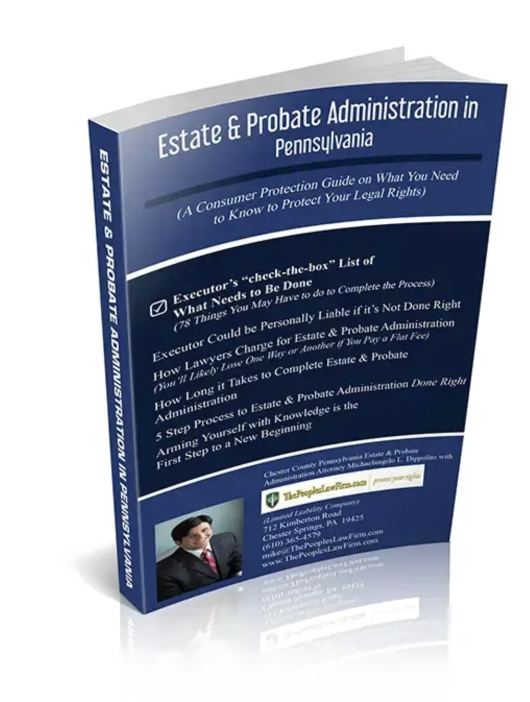A death in the family is a tremendous upheaval, causing grief and anguish and triggering the complex probate process. Being named as a loved one’s personal representative in a will is a considerable honor, meaning your loved one trusted you to carry out their final wishes.
However, this also designates you as the estate and probate administrator, responsible for undertaking a challenging legal process.
Call ThePeoplesLawFirm.com for the help of an experienced Pennsylvania probate lawyer throughout this exacting process, so you don’t have to navigate the legalities of estate administration alone.
Why ThePeoplesLawFirm.com May Be the Right Choice for Your West Caln Probate Case
Whether your loved one’s estate is small and hard-earned or a substantial estate with diverse holdings, they deserve to have their wishes honored in the most efficient way possible so their loved ones don’t have to wait to receive their bequests.
By hiring ThePeoplesLawFirm.com, you’ll have the following advantages:
- Legal counsel and guidance throughout every step of the process by an attorney with over 26 years of experience in Pennsylvania estate law
- A lead attorney on your side who is a published author with an in-depth understanding of probate requirements
- A personalized strategy to minimize the risk of conflict or oversights negatively impacting your probate case
Founding attorney Michaelangelo L. Dippolito has dedicated his career to assisting clients with their estate planning, probate, and estate administration needs with compassion, respect, and a commitment to professional excellence.
Who Can Administer an Estate After a Family Member’s Death?
Many West Caln residents prepare for the inevitable by composing a will or a detailed estate plan to direct the distribution of their estate to their heirs. The person they name as their personal representative or executor becomes the probate administrator after their death.
This is the person who initiates the probate process and then oversees the resolution of debts and the distribution of assets. If a loved one dies without a will, the probate court may appoint a family member as the personal representative. In these cases, the state’s intestacy laws determine inheritance.
What Is the Probate Process In West Caln Estate Administration Cases?
The personal representative named in a will or appointed by the court initiates the estate administration process by first filing the will, along with the death certificate, with the Will Register in the county where the decedent resided before their death. Then, they open the probate case by filing a petition to the county’s probate court (also called the Orphan Court).
Then, the estate administrator must inform the beneficiaries named in the will, any creditors, the IRS, and the public. Notifying the public requires posting notice of the open probate case in local newspapers with the intention of prompting any unknown creditors to come forward before the probate period closes.
Then, the probate administrator conducts a thorough inventory of the estate’s assets and arranges payment to creditors and to meet tax obligations through the estate’s funds. Most wills include directions for how to pay creditors. This may require the sale of one or more assets, depending on the available resources.
Throughout the probate process, the administrator must periodically update the probate court on the status of the process. Finally, once all debts and taxes are resolved, the estate administrator is responsible for distributing the remaining assets to beneficiaries as directed by the will or the state’s inheritance laws.
Contact an Experienced Estate Administration and Probate Attorney In West Caln
A simple error or oversight during the complex probate process in Pennsylvania can leave the estate administrator financially responsible.
Instead of risking conflict and liability, contact us at ThePeoplesLawFirm.com for a free phone consultation and learn how a West Caln probate lawyer can protect your loved one’s estate, ensuring the most efficient and effective probate process possible, tailored to the unique circumstances of your case.





